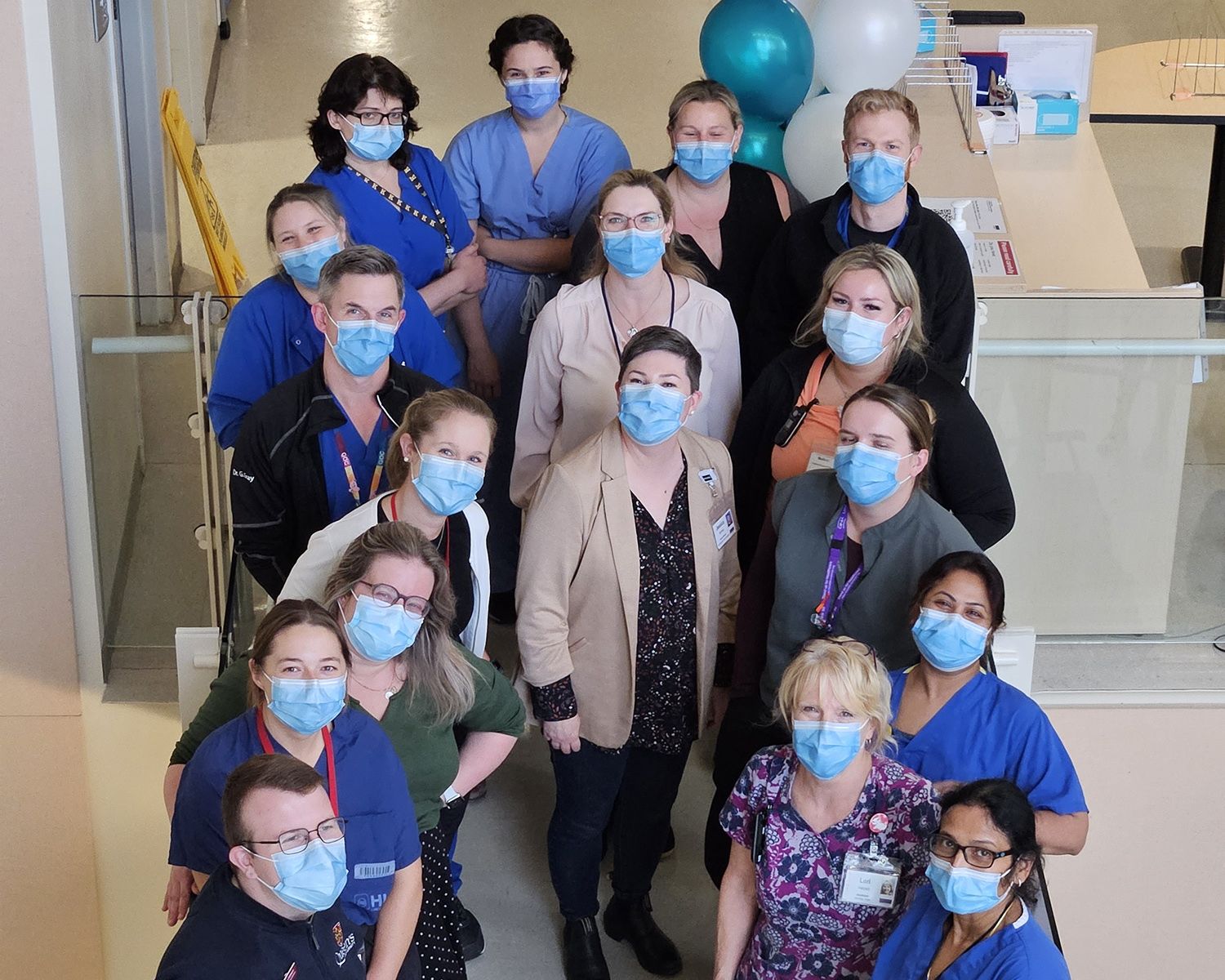
October is breast cancer awareness month and cervical cancer week is Oct. 22-28. It’s an important month for raising awareness about two diseases that impact hundreds of Ontarians each year and, as the month draws to a close, KHSC is highlighting the lifesaving potential of preventative screening.
“Pap party” clinics provide cervical cancer screening for patients without a family doctor
At last week’s “Pap Party” cervical cancer screening clinic, patients without access to a family doctor from Kingston and the surrounding area received important preventative cancer screening. One of two clinics organized for cervical cancer awareness week by the Southeast Regional Cancer Program (SERCP), sessions were free to attend and open to anyone with a cervix who does not have access to a family doctor.
“We’ve been running these clinics for nine years at locations across southeastern Ontario and the amount of engagement has been fantastic,” says Jessica Bonney, Regional Cancer Program Manager. “We managed to fill all available appointments at both clinics this year and expect that interest in future sessions will only continue to grow.”
According to Cancer Care Ontario, over 500 people were diagnosed with Cervical Cancer in Ontario in 2022, with most cases identified in individuals who had not been routinely screened. It is estimated that 16 per cent of attendees at this year’s clinic will require a follow up, which could mean a potentially lifesaving intervention.
Preventative screening allows patients to take an active role in their own healthcare by following a simple but effective routine. The Pap test is the most reliable testing method available and takes approximately 10 minutes. It can identify precancerous abnormalities early, which may otherwise develop into cancer if left untreated. The Ontario Cervical Screening Program is updating its guidelines, but currently recommends that anyone with a cervix who has been sexually active have a pap test every three years, starting at age 21.
“Cervical cancer is caused by the human papillomavirus, and has a high morbidity and mortality rate,” says Dr. Elena Park, Regional Cervical Screening Lead for the SERCP. “Fortunately, there is a latent period when precancerous cells can be identified using a Pap test. The treatment of precancerous cells is straightforward and cervical cancer is almost 100 per cent preventable because of pre-cancer screening tests.”
Breast Imaging Kingston provides self-referral option for routine screening
Earlier this month, the KHSC Diagnostic Imaging department took part in the CIBC Run for the Cure and planned a “wear pink day” to help raise awareness about breast cancer.
It’s estimated that one in nine women will get breast cancer in their lifetime, but regular screening can help detect it early, when treatment is most effective. The best way to do this is through a mammogram, which uses a low-dose X-Ray. Specific guidelines for breast cancer screening are set out by the Ontario Breast Screening Program (OBSP), and are based on age and family history.
According to the Ontario Breast Screening Program (OBSP), for every 200 individuals screened, about 18 are referred for further tests and potential follow-up treatment. OBSP, referral-based mammograms and other breast related tests are done at KHSC’s Breast Imaging Kingston (BIK) site.
You can also self-refer for a mammogram at BIK, which means that a physician’s referral is not required. Call 613-384-4284 to book an appointment.
Here’s what you can do
- Speak to a healthcare provider about getting vaccinated against HPV, if you have not already done so.
- Book a pap test with your healthcare provider if you haven’t been screened, or if it has been three years since your last test.
- If you don’t have a healthcare provider, email @email or phone 1-800-567-5722 ext. 6071 to register for a future clinic:
- 1-4 p.m. Nov. 17, 2023
- 1-4 p.m. Dec. 15, 2023
- 1-4 p.m. Jan. 19, 2024
- 1-4 p.m. Feb. 16, 2024
- If you meet the OBSP eligibility requirements, speak to your healthcare provider or contact BIK directly to book a routine mammogram.
- You can also sign up for Health Care Connect, which connects unattached patients with available physicians and nurse practitioners.





